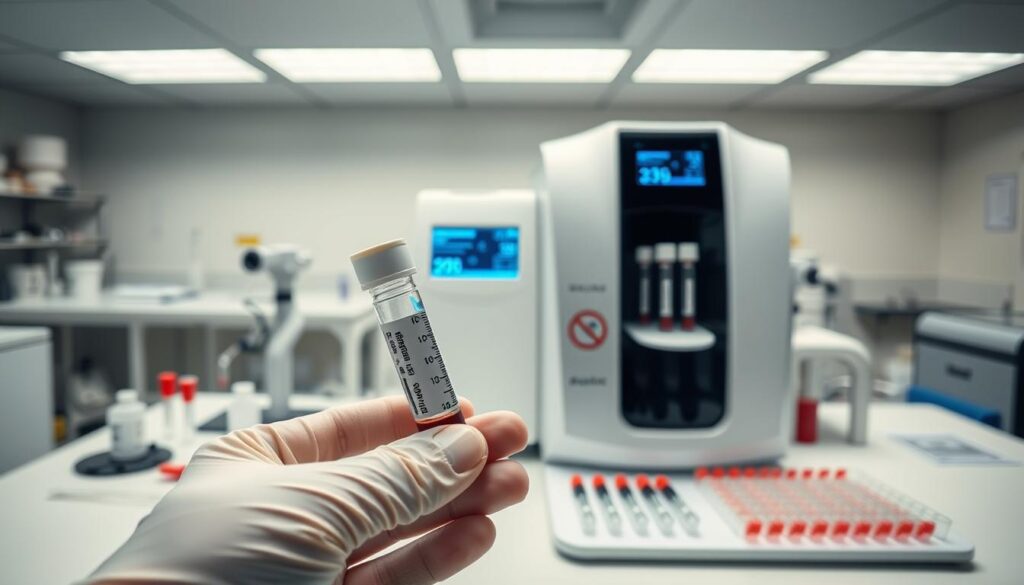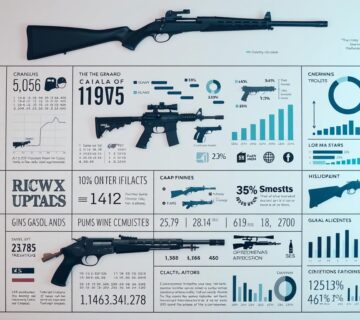Table of Contents
Thousands of drivers in British Columbia face consequences each year for driving after consuming alcohol. Understanding the blood alcohol concentration (BAC) rules and their legal implications is crucial for all drivers in Canada.
The federal Criminal Code of Canada sets the legal blood alcohol concentration (BAC) limit at 0.08% (80 mg%). However, under the BC Motor Vehicle Act, penalties can apply even at lower levels. This article outlines the key limits, penalties, and considerations to help you stay informed.
BAC Limits in BC and Canada
Blood alcohol concentration (BAC) measures the amount of alcohol in a person’s bloodstream, expressed as a percentage. In Canada, the federal legal limit under the Criminal Code of Canada is 0.08% (80 milligrams of alcohol per 100 millilitres of blood). Driving at or above this level is a criminal offence that can result in charges, fines, licence suspension, and possible imprisonment.
In British Columbia, the rules are stricter than the federal standard. Drivers with a BAC between 0.05% and 0.079% may face immediate roadside consequences, including a 24-hour driving prohibition. These penalties are administrative rather than criminal but can still have significant effects on a person’s driving record and insurance costs.
For novice drivers (including those with an “L” or “N” licence under BC’s Graduated Licensing Program), a zero-tolerance policy applies. This means that even a small amount of alcohol in the system can result in penalties, as the law requires these drivers to maintain a BAC of 0.00%.
It is also important to understand that BAC levels can be influenced by many factors, such as body weight, metabolism, food consumption, and the type and timing of alcoholic drinks consumed. Because of this variability, even a single drink can sometimes place a driver close to or over the administrative or criminal thresholds.
Summary:
- Federal limit: 0.08% (criminal offence).
- BC provincial limit: 0.05% to 0.079% (24-hour roadside prohibition).
- Novice drivers: 0.00% (zero tolerance).
Penalties and Legal Consequences
The consequences of driving after consuming alcohol depend on your BAC level, whether it is a first or repeat offence, and whether you are subject to special conditions such as being a novice driver. Both provincial administrative penalties and federal criminal penalties may apply.
Provincial Administrative Penalties (BC Motor Vehicle Act)
- BAC 0.05% to 0.079%:
- Immediate 24-hour roadside driving prohibition.
- Vehicle may be impounded.
- Record of the prohibition is reported to ICBC and can affect future driving privileges and insurance rates.
- Repeat violations in the 0.05% to 0.079% range:
- May trigger longer prohibitions, mandatory participation in remedial programs, and higher insurance premiums.
- Novice drivers (L or N licence):
- Must maintain a BAC of 0.00%.
- Any alcohol detected can result in a driving prohibition, violation points, and possible requirement to restart the graduated licensing program.
Federal Criminal Offences (Criminal Code of Canada)

- BAC 0.08% or higher, or refusal to provide a breath sample:
- Immediate 90-day roadside driving prohibition.
- Vehicle impoundment (minimum 30 days).
- Criminal charges may be laid.
- Conviction can result in:
- A fine,
- A criminal record,
- A mandatory driving prohibition,
- In some cases, imprisonment.
- Repeat criminal impaired driving offences:
- Longer prohibitions,
- Higher fines,
- Mandatory installation of an ignition interlock device,
- Increased risk of jail sentences.
Long-Term Implications
- A criminal conviction for impaired driving remains on your record and may affect employment, international travel, and immigration status.
- Both administrative prohibitions and criminal convictions are recorded with ICBC and RoadSafetyBC, which can significantly increase insurance premiums.

Penalties and Legal Consequences
- BAC of 0.05% to 0.079%: Immediate 24-hour roadside prohibition.
- BAC of 0.08% or higher: Criminal offence under the Criminal Code. Penalties may include licence suspension, vehicle impoundment, fines, and possible imprisonment.
- Repeat offences: Penalties increase and may include ignition interlock requirements.
These measures are in place to promote road safety and reduce impaired driving incidents.
Provincial vs. Federal Guidelines
| Aspect | Provincial (BC) | Federal (Canada) |
|---|---|---|
| Legal BAC Limit | 0.05% roadside prohibition | 0.08% criminal offence |
| Zero Tolerance | Novice drivers | Under 22 years old |
| Consequences Below 0.08% | 24-hour prohibition | No criminal charge |
BAC Testing
Police may use roadside screening devices or breathalyzers. These devices must be properly calibrated and administered according to legal standards. In some cases, the accuracy or procedure may be challenged in court.
Possible Legal Defences
Every impaired driving case is unique, and the availability of legal defences depends on the facts and evidence. While not all cases can be successfully challenged, there are several recognized areas where defences may arise:
1. Accuracy of BAC Testing
- Breathalyzer and roadside screening devices must be properly calibrated, maintained, and operated by a trained officer.
- If there are issues with calibration, maintenance logs, or testing procedures, the results may be called into question.
2. Police Procedure
- Police must follow certain constitutional and procedural safeguards during an impaired driving investigation.
- For example, a driver must be properly informed of their rights, including the right to consult a lawyer without delay.
- If police fail to follow procedure, it may affect the admissibility of evidence.
3. Timing of Alcohol Consumption
- In some cases, alcohol consumed shortly before or after driving can affect how BAC is measured.
- This can raise questions about whether the driver was legally over the limit at the time of driving, even if later testing shows a higher reading.
4. Medical and Individual Factors
- Certain health conditions, medications, or unique physiological traits may affect how alcohol is absorbed and detected.
- These issues may be considered when evaluating the reliability of test results.
5. Roadside Screening Challenges
- Roadside tests are intended as preliminary tools and must be used correctly.
- If a device malfunctions or is used improperly, this may provide a basis to challenge the result.
⚖️ Important Note: Raising a defence does not guarantee that charges will be withdrawn or reduced. Courts assess each case on its facts and the quality of the evidence. Consulting a lawyer experienced in impaired driving matters can help you understand which defences, if any, may apply to your situation.

Getting Legal Advice
If you are facing an impaired driving charge, you may wish to consult a lawyer. A lawyer can help you understand the law, review the evidence, and discuss possible options for your case.
Conclusion
- In BC, any BAC above 0.05% can lead to penalties, and 0.08% or higher is a criminal offence.
- The consequences can be significant, including fines, prohibitions, and criminal records.
- Staying informed is the best way to avoid penalties and protect your driving privileges.
Disclaimer
This article provides general information only and does not constitute legal advice. Laws and penalties may change. For advice about your specific situation, please consult a qualified lawyer. Past results do not guarantee future outcomes. Each case is unique and will depend on its own facts and circumstances.
Contact Information
If you require legal assistance with impaired driving matters, you may contact:
Sohi Law Group
📞 833-877-9797
🌐 Visit Sohi Law Group Website
Frequently Asked Questions (FAQ)
Q1. What is the legal blood alcohol concentration (BAC) limit in British Columbia?
In BC, the federal criminal limit is 0.08%. However, provincial roadside penalties can apply starting at 0.05%, and novice drivers must have 0.00% BAC.
Q2. What happens if I am pulled over with a BAC between 0.05% and 0.079%?
Police may issue an immediate 24-hour roadside prohibition. This is an administrative penalty under the Motor Vehicle Act, not a criminal offence, but it can affect your driving record and insurance.
Q3. What are the penalties if my BAC is 0.08% or higher?
At this level, you may face criminal charges under the Criminal Code of Canada. Consequences can include a licence suspension, vehicle impoundment, fines, a criminal record, and possible jail time.
Q4. Can I refuse a breathalyzer test?
Refusing to provide a breath sample is itself a criminal offence and generally carries penalties similar to impaired driving.
Q5. How is BAC measured?
Police may use roadside screening devices or approved breathalyzer machines. In some cases, blood samples may also be taken. These tests must follow strict procedures to be admissible in court.
Q6. Will a roadside prohibition affect my driving record?
Yes. Even though it is not a criminal conviction, a roadside prohibition is recorded with ICBC and RoadSafetyBC. This can influence insurance premiums and may count toward escalating penalties if further incidents occur.
Q7. Can impaired driving charges be challenged?
Yes, but success depends on the evidence and circumstances. Possible areas of challenge include breathalyzer accuracy, police procedures, and timing of alcohol consumption. Speaking with a lawyer can help you understand your options.
Q8. What should I do if I am charged with impaired driving?
You should seek legal advice as soon as possible. A lawyer can explain your rights, review the evidence, and discuss possible outcomes or defences.





No comment